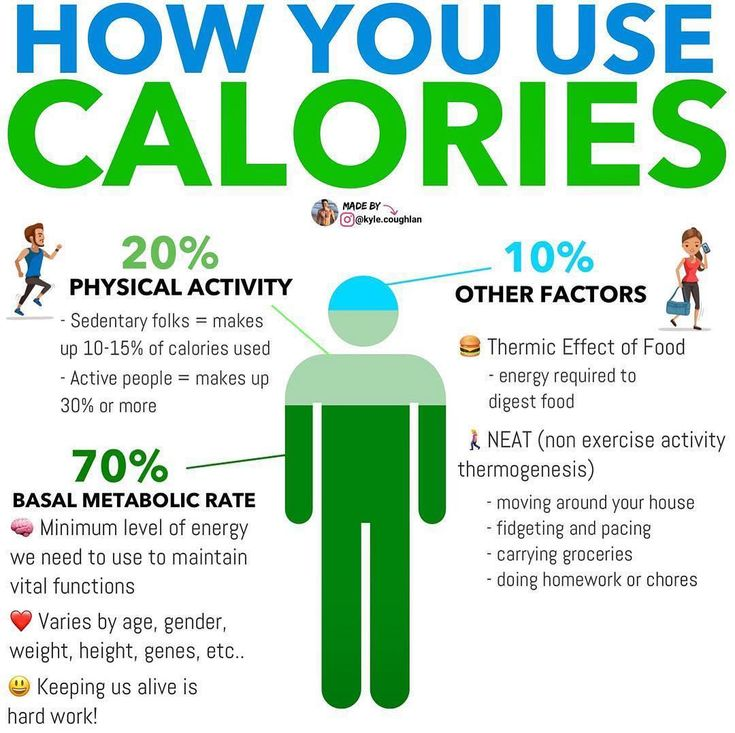Discover the truth about sluggish metabolism, how it affects weight, and how to burn more calories.
Some people attribute their weight to their body's metabolism, which is the process through which food is converted into energy. They believe they have a slow metabolism. However, is that actually the reason? If so, is there a way to quicken the process?
It is true that weight is related to how quickly the body digests meals. However, weight gain isn't typically brought on by a slow metabolism.
The amount of energy a body needs is determined in part by metabolism. However, a person's weight is influenced by their diet, amount of alcohol consumed, and level of exercise.
Metabolism: Converting food into energy
The process through which the body converts food and liquids into energy is called metabolism. To create the energy the body requires, calories from food and beverages combine with oxygen throughout this process.
A body needs energy for all its functions, even when at rest. This includes breathing, blood circulation, regulating hormone levels, and cell growth and repair. The basal metabolic rate, also known as basal metabolism, is the quantity of calories a body consumes while at rest to carry out these functions.
Muscle mass is the main factor in basal metabolic rate. Basal metabolic rate also depends on:
- Body size and composition. People who are larger or have more muscle burn more calories, even at rest.
- Sex. Men usually have less body fat and more muscle than do women of the same age and weight. That means men burn more calories.
- Age. With aging, people tend to lose muscle. More of the body's weight is from fat, which slows calorie burning.
Besides the basal metabolic rate, two other things decide how many calories a body burns each day:
- How the body uses food. Digesting, absorbing, moving and storing food burn calories. About 10% of calories eaten are used for digesting food and taking in nutrients. This can't be changed much.
How much a body moves. Any movement, such as playing tennis, walking to a store or chasing the dog, makes up the rest of the calories a body burns each day. This can be changed a lot, both by doing more exercise and just moving more during the day.
Daily activity that isn't exercise is called nonexercise activity thermogenesis (NEAT). This includes walking around the house. It also includes activities such as gardening and housework, and even fidgeting. NEAT accounts for about 100 to 800 calories used daily.
Metabolism and weight
You could want to attribute weight gain and a sluggish metabolism to a medical ailment. Rarely, however, can a medical problem reduce metabolism to the point where significant weight gain results. Cushing syndrome and hypothyroidism, which is an underactive thyroid gland, are two conditions that can lead to weight gain. These ailments are not prevalent.
The causes of weight increase are numerous. Genes, hormones, food, and lifestyle factors including stress, sleep, and physical activity are probably among them. If you consume more calories than you expend or expend less calories than you consume, you will gain weight.
Some people appear to be more easily and quickly able to lose weight than others. But by burning more calories than they consume, everyone loses weight. The main point is that calories matter. You must eat fewer calories or engage in greater physical activity to reduce weight. Alternately, you could exercise both options.
A closer look at physical activity and metabolism
Your basal metabolic rate is difficult to adjust, but you can influence how many calories you burn through exercise. You burn more calories when you are more active. In reality, some individuals with a quick metabolism are likely simply more active and possibly fidgetier than others.
To burn more calories, the Physical Activity Guidelines for Americans recommends the following:
Aerobic activity. As a general goal, aim for at least 30 minutes of moderate physical activity every day. If you want to lose weight, maintain weight loss or meet specific fitness goals, you may need to exercise more.
Moderate aerobic exercise includes activities such as brisk walking, biking, swimming and mowing the lawn. Vigorous aerobic exercise includes activities such as running, heavy yardwork and aerobic dancing.
- Strength training. Do strength training exercises for all major muscle groups at least two times a week. Strength training can include use of weight machines, your own body weight, heavy bags, resistance tubing or resistance paddles in the water, or activities such as rock climbing.
No magic bullet
Don't depend on dietary supplements to aid in calorie burning or weight loss. Typically, products that make claims about accelerating metabolism fall short of their promises. Some could have negative side effects.
The U.S. Food and Drug Administration doesn't ask for proof that dietary supplements are safe or that they work. Question the claims that are made. Always let your health care providers know about supplements you take.
There's no easy way to lose weight. To take in fewer calories than you burn, the 2020-2025 Dietary Guidelines for Americans recommends cutting 500 to 750 calories a day to lose 1 to 1.5 pounds (0.5 to 0.7 kilograms) a week. Add more physical activity to get to your weight-loss goals faster and maintain your weight loss.
A health care provider, such as a doctor or registered dietitian, can help you explore ways to lose weight.





0 Comments